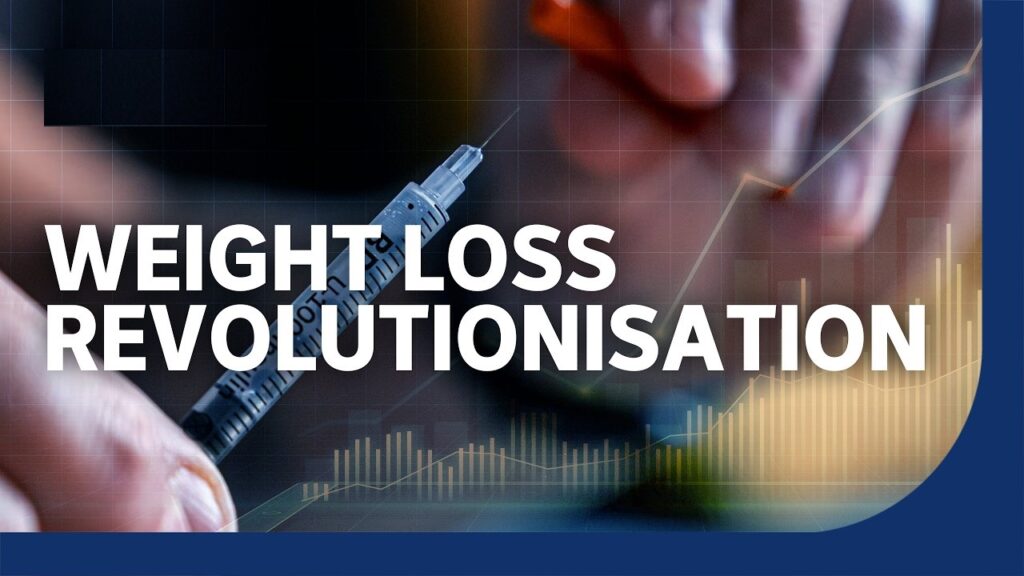Are booming pharmaceutical exports and Trump tariff threats reshaping the market? What’s behind Ireland’s profit surge?
Table of Contents
ToggleIreland Pharma Profits: Fueling a Global Economic Powerhouse
Ireland’s pharmaceutical sector has become a beacon of economic strength and innovation, with Ireland Pharma Profits surging as a direct result of booming exports. In 2023, Ireland recorded an impressive €31 billion trade surplus with the U.S.-a figure that underscores the critical role played by pharmaceutical exports. This success is largely driven by major companies like Eli Lilly, Pfizer, Novo Nordisk, and Johnson & Johnson, whose state-of-the-art facilities in Ireland are central to the global production of breakthrough medications.
The Weight Loss Drugs Revolution and Economic Impact

One of the most remarkable stories in this growth is the production of revolutionary weight loss drugs such as Mounjaro and Zepbound. Manufactured in Kinsale, County Cork by Eli Lilly, these drugs have transformed treatment protocols for type 2 diabetes and obesity. Mounjaro, which contains the active ingredient tirzepatide, has not only delivered dramatic clinical results—showing patients a 15–22% reduction in body weight—but also boosted Ireland Pharma Profits by contributing to global sales of around $5.3 billion in 2023.
Pharmaceutical exports, including these life-changing weight loss drugs, now account for nearly 64% of Ireland’s goods exports (CSO Ireland, 2023). The sector employs about 50,000 people and injects an annual €120 billion into the economy, creating ripples of prosperity that extend from local communities to international markets. Local areas like Kinsale have experienced direct job creation (500+ roles) and robust infrastructure investments-a testament to the broader benefits of Ireland’s thriving pharmaceutical industry.
Trump Tariff Threats: Economic Nationalism Meets Global Pharma
Trump’s Comments and Their Underlying Motives
In February 2024, former President Trump ignited controversy by accusing Ireland of capitalizing “unfairly” on U.S. dependency for its pharmaceutical ingredients. At a rally, he declared:
“They’re making billions off our patients. We need to bring these jobs back to America and tax their exports if they won’t play fair.”
Trump’s tariff threats are rooted in a longstanding belief in economic nationalism. His rhetoric targets not only the booming Ireland Pharma Profits but also the broader dependency on pharmaceutical exports from Ireland. According to Trump, with the U.S. importing nearly 80% of active pharmaceutical ingredients (APIs) from global suppliers, there is a pressing need to “reclaim” American jobs and reduce trade deficits through measures such as a proposed 10% universal baseline tariff-with even harsher 200% tariffs looming for select goods like Irish whiskey.
This approach is designed to counterbalance the economic gains that other nations enjoy, but critics warn that such protectionist measures might disrupt delicate global supply chains, potentially raising drug prices and destabilizing the market.
Ireland’s Response: Innovation, Diplomacy, and Global Partnerships
Defending the Model of Innovation
In the face of escalating Trump Tariff Threats, Irish officials have maintained that the impressive Ireland Pharma Profits are a direct result of innovation, skilled labor, and a competitive business environment rather than any “unfair” tactics. Taoiseach Simon Harris affirmed:
“Ireland’s pharma success is built on innovation and skilled labor, not unfair practices. We’re committed to maintaining strong U.S. ties.”
This statement reinforces Ireland’s position as a global leader in pharmaceutical manufacturing, with its model attracting over 900 U.S. companies—including tech giants like Apple and Google—thanks to its competitive 12.5% corporate tax rate. Such partnerships are pivotal for sustaining long-term growth and mutually beneficial trade relationships.
Economic and Diplomatic Strategies
In the face of escalating Trump Tariff Threats, Irish officials have maintained that the impressive Ireland Pharma Profits are a direct result of innovation, skilled labor, and a competitive business environment rather than any “unfair” tactics. Taoiseach Simon Harris affirmed:
“Ireland’s pharma success is built on innovation and skilled labor, not unfair practices. We’re committed to maintaining strong U.S. ties.”
This statement reinforces Ireland’s position as a global leader in pharmaceutical manufacturing, with its model attracting over 900 U.S. companies—including tech giants like Apple and Google—thanks to its competitive 12.5% corporate tax rate. Such partnerships are pivotal for sustaining long-term growth and mutually beneficial trade relationships.
Deep Dive: Use Cases of Mounjaro and Zepbound
Mounjaro: A Breakthrough in Weight Loss Therapy
Approved by the FDA in May 2022 for type 2 diabetes management, Mounjaro has rapidly become a game changer-especially as an off-label treatment for weight loss. Clinical trials, notably the SURMOUNT studies, demonstrated that patients experienced a 15–22% reduction in body weight. Functioning as a dual GLP-1/GIP agonist, Mounjaro not only enhances insulin secretion but also curbs appetite, providing a dual benefit for patients battling obesity.
Zepbound: Pioneering Chronic Weight Management
Following closely on Mounjaro’s success, Zepbound received FDA approval in November 2023 for chronic weight management. Targeted at adults with a BMI ≥30 or those with comorbidities at a BMI ≥27, Zepbound has shown promising results in Phase 3 trials—achieving a 21% reduction in body weight. Its potential application in treating obstructive sleep apnea (OSA) in obese patients further underlines its versatility and importance in the weight loss drugs market.
The Competitive Landscape: Substitute Medications
While Mounjaro and Zepbound dominate headlines, several substitute medications are emerging in the fiercely competitive GLP-1/GIP agonist space:
- Wegovy (Semaglutide) by Novo Nordisk: Widely used for both obesity and type 2 diabetes, with around 15% weight loss in clinical trials.
- Ozempic (Semaglutide) by Novo Nordisk: Initially for diabetes, now also popular off-label for weight loss with 12–14% average reduction.
- Saxenda (Liraglutide) by Novo Nordisk: Approved for obesity management, delivering a 5–10% weight loss.
- Retatrutide (Eli Lilly): A triple agonist currently in Phase 3, showing an early trial weight loss of approximately 24%.
- CagriSema (Novo Nordisk): In Phase 3, this GLP-1/amylin agonist has shown promising early results with around 17% weight loss.
These alternatives not only offer additional choices for patients but also intensify the competition within the pharmaceutical sector, reinforcing the growth of Ireland Pharma Profits through diverse and innovative drug developments.
Broader Implications for Global Trade and Innovation
Impact on U.S.-Ireland Trade Relations
The intersection of Ireland Pharma Profits with Trump Tariff Threats underscores the complexities of modern global trade. While tariffs are intended to protect domestic industries, they can inadvertently disrupt international partnerships that have been instrumental in fostering innovation and economic growth. The U.S. remains deeply intertwined with Irish pharmaceutical exports, making the debate over tariffs not just about economics but also about strategic national interests and supply chain resilience.
The Role of Patents and Long-Term Strategies
Another critical dimension is the lifecycle of key drugs. For instance, Mounjaro’s U.S. patent, which expires in 2036, raises questions about the future influx of generic alternatives. This scenario calls for both American and Irish stakeholders to develop forward-looking strategies to maintain market competitiveness and ensure that Ireland Pharma Profits remain robust amid evolving global challenges.
FAQ:
Q1: Is Zepbound covered by insurance?
A: Coverage varies by provider; check with your insurer to see if it’s covered under your plan.
Q2: How does Zepbound work?
A: Zepbound mimics natural hormones to help control blood sugar and reduce appetite, aiding in weight loss.
Q3: How long do Zepbound side effects last?
A: Side effects typically subside within a few days to a couple of weeks as your body adjusts.
Q4: How long do Mounjaro side effects last?
A: For most people, side effects lessen within a few weeks, though it can vary individually.
Q4: How long do Mounjaro side effects last?
A: For most people, side effects lessen within a few weeks, though it can vary individually.
Q5: Where should Mounjaro be injected?
A: Mounjaro is usually injected under the skin in the thigh, abdomen, or upper arm.
Q6: Does Mounjaro make you tired?
A: Some users may experience tiredness as a side effect, though it’s not very common.
Q7: What do Trump’s new tariff threats mean for the U.S. economy?
A: They could lead to higher prices for consumers and disrupt trade, potentially impacting supply chains and economic growth.
Q8: Why has President Donald Trump made tariff threats?
A: Trump’s tariff threats aim to protect American jobs and reduce the trade deficit by pressuring foreign companies to adjust their practices.
Q9: Does Medicare cover weight loss drugs?
A: Generally, Medicare does not cover weight loss drugs unless they’re prescribed for specific medical conditions. Always confirm with your provider.
Q10: What are "Ireland Pharma Profits"?
A: This term refers to the significant financial gains Ireland experiences from its booming pharmaceutical exports, which contribute substantially to its trade surplus.

Jugaad on Two Wheels: The Hilarious Bike Parcel Hack in Karnataka
The Great Karnataka Bike Parcel Hack: A Jugaad Masterclass #RapidoParcel: In a creative yet controversial move, ride-hailing platform Rapido has found a way around Karnataka’s

Denmark’s Digital Sovereignty Revolution: Linux and LibreOffice Lead the Way
Introduction to Denmark’s Bold Move In June 2025, Denmark’s Ministry of Digital Affairs made headlines by embracing digital sovereignty, ditching Microsoft Windows and Office 365

🏏Sports as a Business Strategy: Insights from Vijay Mallya’s RCB Ownership
🧠 Sports as a Business Strategy (Tool) In modern business, few platforms offer better engagement and emotional connection than sports. From football clubs in Europe

🙏 Apologies in Leadership: Vijay Mallya Public Apology
🧠 Introduction: The Role of Apologies in Leadership In the corporate world, apologies aren’t signs of weakness—they’re strategic acts of leadership. When made with sincerity

Audiobook Production Costs: Navigating Recording Artists, Studio Expenses, and AI’s Impact
The audiobook industry is booming, with over 130 million listeners in the U.S. alone in 2021 and a growing global appetite for audio content. Producing

Media Trial of Vijay Mallya: How Public Perception Shaped Vijay Mallya’s Legacy
Introduction: Media’s Influence on Business Narratives In today’s hyper-connected world, media narratives can make or break a business reputation. For Vijay Mallya, once known as

